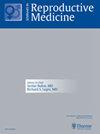Obesity, Diabetes and Reproductive Health.
IF 1.9
3区 医学
Q3 OBSTETRICS & GYNECOLOGY
Seminars in reproductive medicine
Pub Date : 2020-11-01
Epub Date: 2021-03-31
DOI:10.1055/s-0041-1727221
引用次数: 1
Abstract
As the global prevalence of obesity continues to climb exponentially, a concurrent increase in diabetes is now evident in both developed and developing countries. Obesity and diabetes have deleterious effects on reproductive health and affect fertility in a myriad of ways, including but not limited to perturbations of the hypothalamic-pituitary-ovarian axis, oocyte quality and implantation. The relationship between obesity, diabetes and reproductive disorders is multidirectional, where obesity increases the risk of diabetes and diabetes in turn exacerbates weight gain via insulin resistance and exogenous insulin administration. The interplay between obesity and insulin resistance underlies the pathophysiology of polycystic ovary syndrome (PCOS), the most common endocrinopathy in reproductive agedwomen. Diabetes and obesity both lead to a pro-inflammatorymilieu, impairing ovarian follicle and steroid hormone production,1 leading tomenstrual disturbance. On the other hand, PCOS is associated with an increased risk of obesity and dysglycaemia, cementing the link between reproductive andmetabolic health. The relationship between obesity, diabetes and reproductive health is highlighted at specific reproductive stages. During the preconception phase, women with obesity are at higher risk of PCOS or infertility. After conception, pre-existing obesity and excess gestational weight gain increase the risk of developing gestational diabetes, hypertension and pre-eclampsia.2 There are also further considerations in managing pre-existing diabetes during pregnancy where blood glucose control can be challenging due to changes in insulin sensitivity with each trimester.3 Higher body mass index and poorer glycaemic control are associated with increased risks of adverse effects to the fetus, such as macrosomia or intrauterine growth restriction. In the postpartum period and beyond, a history of pregnancy with complications such as gestational diabetes increases the risk of type 2 diabetes later in life,4 especially in those with excess weight gain.5 Therefore, early recognition and management of these risk factors are vital to optimize pregnancy and long-term maternal health outcomes. In this issue, we cover the epidemiology and mechanisms of obesity in women with diabetes and describe the relationships between obesity, diabetes and reproductive disorders.We discuss the prevention of these conditions in the preconception, intrapartum and postpartum phases. The shortand longterm management and prognosis of these conditions are also discussed in more detail. Finally, perspectives on the whole-person impact these conditions have on individuals, in terms of stigma and mental health consequences, are explored. We hope that the articles in this issue will be a valuable resource to clinicians and scientists alike, for improving the care of reproductive-aged women at increased risk of metabolic disease. In addition, we aim to promote a greater awareness and interest on the effects of obesity and diabetes on female reproductive health, and timely management of these conditions from preconception to postpartum, and beyond.肥胖、糖尿病和生殖健康。
本文章由计算机程序翻译,如有差异,请以英文原文为准。
求助全文
约1分钟内获得全文
求助全文
来源期刊
CiteScore
5.80
自引率
0.00%
发文量
24
审稿时长
6-12 weeks
期刊介绍:
Seminars in Reproductive Medicine is a bi-monthly topic driven review journal that provides in-depth coverage of important advances in the understanding of normal and disordered human reproductive function, as well as new diagnostic and interventional techniques.
Seminars in Reproductive Medicine offers an informed perspective on issues like male and female infertility, reproductive physiology, pharmacological hormonal manipulation, and state-of-the-art assisted reproductive technologies.

 求助内容:
求助内容: 应助结果提醒方式:
应助结果提醒方式:


